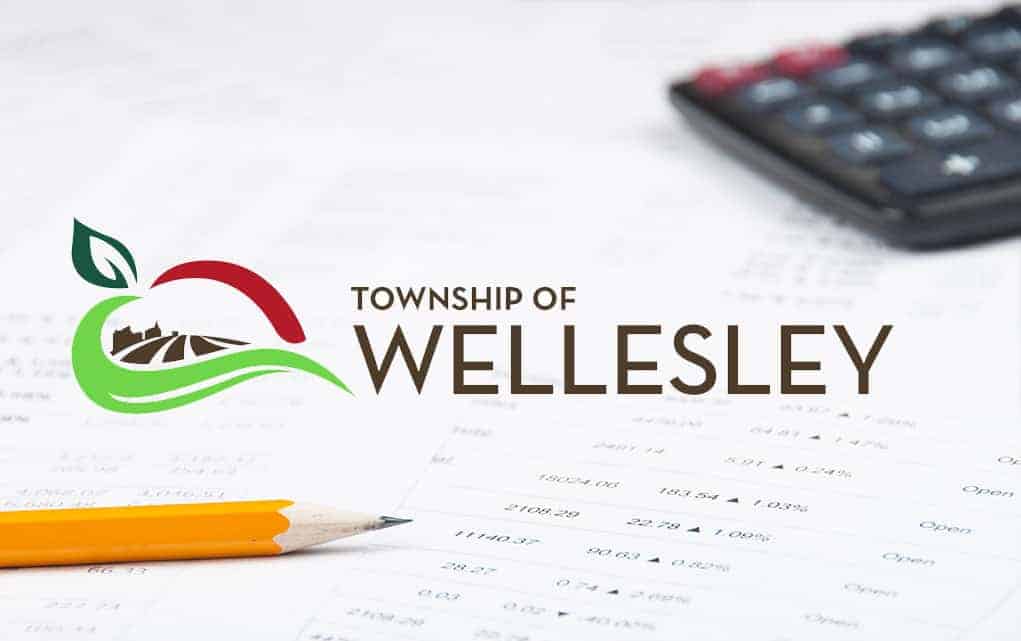The region was hit by some of the most severe weather yet this winter as a mixture of intense snow fall and wind gusts topping 93 km/h on Monday caused whiteout conditions, road closures and collisions across southern Ontario.
Poor visibility was an issue especially on rural roadways in both Woolwich and Wellesley townships due to drifting snow. Those attempting the drive out of Elmira, for instance, had to find an alternative to Arthur Street, which was blocked off at the request of regional police for more than 12 hours after several vehicles became stranded along the roadway in the early hours of Monday.
“It was closed from 6:30 a.m. to 7 p.m. due to blowing snow and zero visibility, due to the whiteout conditions,” said Sgt. Kelly Gibson in an email to the Observer. “There were approximately 20 cars pulled to the side of the road with their four-way flashers on at approximately 6 a.m.”
“The police asked that [road] to be closed due to the conditions and the fact that there were several vehicles stuck in the middle of the road or off in the ditches, and they were trying to get them out,” said Emil Marion, manager of transportation operations for the Region of Waterloo, which is responsible for maintaining regional roads in the townships.
“So it was a combination of the conditions and the fact of the vehicles that were in a dangerous situation on the road,” said Marion. “And then there were a few times we tried to get it reopened through the day, but again the police had asked to keep it closed to try to get those vehicles out of there.”
The situation was played out across both townships, which saw closures of several regional roads due to stalled vehicles and several collisions. By just 2 p.m. on Monday, a total of 35 collisions had been reported to regional police, said WRPS spokesperson Cherri Greeno.
“We closed Listowel Road between Arthur Street South and Line 86 from 3:30 a.m. to 12:30 p.m. due to the whiteout conditions and snow accumulating on the road,” said Gibson. “At 3:30 a.m. an officer noted there were six transports stuck in snow and unable to drive due to zero visibility and lined up along Listowel Road near Arthur Street. There had also been a collision between a transport and an SUV, no injuries reported. One of the transports had to be towed out of the snow before the road was opened at 12:30 p.m.”
Elsewhere in the township, a single motor vehicle collision resulted in the closure of Floradale Road between Listowel and Church Street until late afternoon.
“The driver was unable to see the roadway due to the whiteout conditions and drove off the road striking a hydro pole,” said Gibson. “Hydro had to replace the pole and the road remained closed throughout the night.”
In neighbouring Wellesley Township, several multi-vehicle collisions along Herrgott Road forced its closure starting at 9:30 a.m. By 3:45 p.m., the township was reporting the road had been opened again through its social media accounts.
“We also closed Herrgott Road in two spots, first between Lobsinger Line and Hessen Strasse for two multi-vehicle collisions (no injuries),” said Gibson. “One was a three-vehicle collision and 50 metres away a five-vehicle collision had occurred. Herrgott was also closed between Geddes and Lawson and there was a six-vehicle, plus one transport collision at this location.”
By Tuesday, the worst of the weather appeared to be over, but Environment Canada was already issuing warnings of more heavy snowfall again by midweek.
“It appears that the heaviest snow will fall Wednesday afternoon, resulting in a significant impact on the commute home late in the day. Untreated roads may become snow covered and slippery,” said Environment Canada in an alert issued Tuesday.
“This snow event will be from yet another in a series of low pressure systems which have formed over the southern Plains States. This latest low will pass by just to the south of Lakes Erie and Ontario on Wednesday,” said the alert.
The latest snow squalls are sure to add additional pressure onto the townships budgets for winter control, with Woolwich recording $241,000 in the first two months of this year – significantly higher than last year’s $122,000, but still below 2017’s $322,000.









